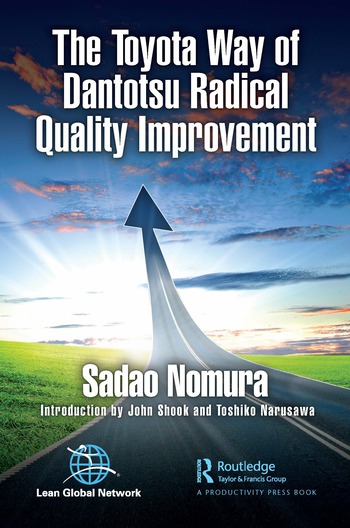There has been much drive-by observation of lean operations over the years. A drive-by will unveil a fair amount of the operational side of lean, much less of the managerial. But, one management characteristic the observant drive-by observer will in fact be able to see quickly is no blame — the contrast of the five whys of lean management with the five whos of traditional management will even jump out at you.
No blame is indeed an important feature of lean management. A culture of management seeking where to place the blame — the five whos — will absolutely prevent the flourishing of a culture that fosters ubiquitous use of the five whys. And there is little more essential to lean management than investigation of the root causes of problems at the gemba through the persistent use of the five whys.
You have to stick around a little longer, observe a little closer to see the rarely-discussed flip side to no blame: no excuses. Without this behavior — adopting the attitude and practice of no excuses — the essential five why practice cannot take root nor can a solid lean management system develop. No excuses is a necessary enabler of no blame. A reason lean managers don’t focus on who to blame for a given problem is simply (pause) that they don’t have to — because ownership of the issue is already clear.
For example, a worker on an assembly line owns accurate, complete, and timely execution of his or her standardized work. Improper torque applied to a bolt? Why? Was correct torque defined, the proper tool supplied, and clear job instructions and training provided? Then, the worker has no excuses. The team leader owns the support, training, and leadership of his or her team members as well as the completion with 100% quality of his team’s clearly defined output. No excuses. Plant floor responsibilities such as those are relatively easy, actually. But, in a lean management system, the same principle applies … everywhere. For every problem that occurs, ownership is or must be made clear — no excuses. An engineering drawing is incomplete — no excuses. An invoice is incorrect — no excuses. An SEC filing is improper (are you listening Wall Street?) — no excuses.
Canadian hockey coach and commentator Barry Melrose describes the role of the coach in any sport: “The coach’s job is to take excuses away from the player — no travel problems, no equipment problems, no bad practices, no bad game plans — so that there is nowhere for the player to look but in the mirror.”
I think the same truism applies to work as well. Think back to our assembly line worker above who may improperly perform his or her standardized work. Our challenge as manager/leaders is to understand why the worker isn’t following the standardized work, to ask why the worker can’t perform the job as designed, to ask what stands in the way between the worker and successful completion of his or her job requirements? Our job is to remove all those barriers, so there is nowhere else for the worker to look but in the mirror. The worker needs proper tools? Supply them. Needs training? Provide it. Needs the right part at the right time in the right amount? Get it there. Needs deeper understanding of the purpose? Explain it.
When no excuses is established, no blame is easy. When no excuses isn’t present, no blame is impossible.
See you next time,
John
John Shook
Senior Advisor, Lean Enterprise Institute






